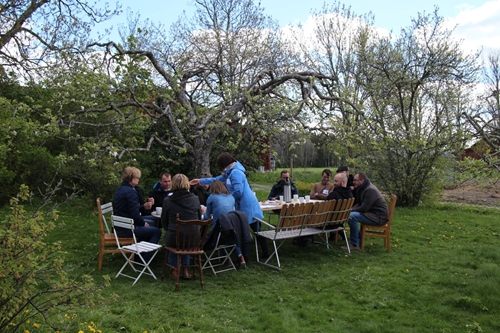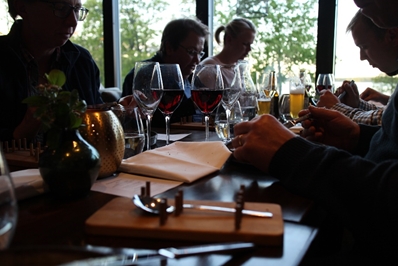The focus of the Swedish case study is diversification of livestock farms and the participating farms investigate possibilities of growing more food for direct human consumption.
Together with the main case study partner, Swedish oat drink company Oatly, a campaign was launched to find farmers willing to complement their livestock production with more edible crops. Over a hundred livestock farmers from all across Sweden applied to be part of the Swedish case study. From these, eleven farms were selected to represent different regions of Sweden - from the very south to as far north as Skellefteå - and at different stages of implementing agroecologial practises on their farms. Common to all farms selected is that they produce ruminant products (beef or lamb meat and/or dairy) and also either already produce crops for direct human consumption or has a will to do so. The key challenge addressed in the case study is diversification as a path to reduce the climate impact of food production, improve outcomes for sustainability, and to provide a route for farmers to take part of the transformation to a food system that can be fitted within the planetary boundaries. Additionally, Oatly is interested in finding concepts for more sustainable cultivation of oats.
The kick-off event started with a farm visit to the Swedish case study champion Adam Arnesson who runs a diversified farm (Jannelund’s farm) in the south central of Sweden where he produces lamb meat, cereals, legumes and vegetables. This farm has been investigated in a previous research project that aimed to analyse what a transition from pure lamb meat production to production of a multitude of crops entails for on-farm sustainability. More information on that can be found in this report: The sustainable farm – does it exist?

Photo 1: Farm visit at Jannelund’s farm starts with classic Swedish “fika” – coffee and buns.
After visiting Jannelund, the group gathered at a local inn and the UNISECO project was further introduced. A lecture on sustainable farming was then given by one of the researchers which resulted in a lively and interesting discussion on what sustainability means and how it can be measured.
The day ended with a nice dinner based on locally sourced foods, including lamb from stakeholder champion Adam’s farm, wild foraged garlic, heirloom tomatoes, locally brewed beer and much more.

Photo 2: Dinner at a local inn, enjoying a meal based on locally sources products
The second day was spent on digging deeper into the UNISECO project. The decision support tools that will be used in the project were introduced, practical information was discussed and a workshop aimed at identifying actors and power dynamics in the social-ecological system was held. Farmers were also given the opportunity to discuss in groups about future possibilities for their farms related to the Swedish case study challenge. The next step following the kick-off is the on-farm sustainability assessments and later during 2019, a second workshop to discuss results and begin planning for diversification towards more crops for direct human consumption.
